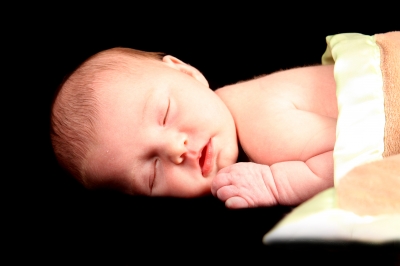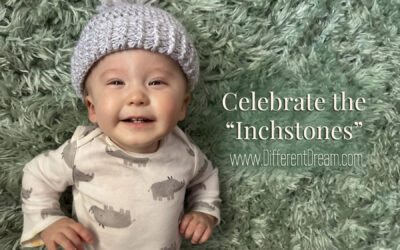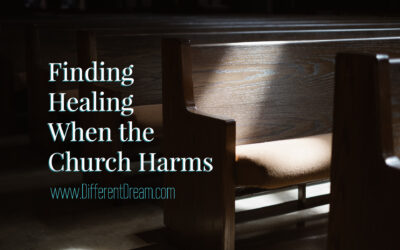Post-Traumatic Stress Disorder and Sleeping Babies

Post-traumatic stress disorder and sleeping babies. What could they possibly have in common? A study conducted by researchers at the University of Oregon about what sleeping babies hear found a possible link. Or maybe it’s more accurate to say they discovered a link in a chain that could partially explain why some children we think haven’t experienced trauma develop post-traumatic stress disorder.
Sleeping Babies and fMRIs
The chain of discoveries is described in an NPR story. It began when Psychologists Alice Graham, Philip Fisher, and Jennifer Pfeifer decided to take a look at what happens inside the brains of infants when they hear conflict and angry voices. They planned to use a noninvasive brain-scanning technique called fMRI to scan the brains of infants and identify areas of the brain activated by angry voices. But getting babies to hold still for a long time during a noisy test wasn’t going to happen—unless they tested sleeping babies. Game on!
Sleeping Babies and Arguments
Once parents rocked their children to sleep, the babies were placed in the scan machine where voices speaking nonsense words spoke in 3 different tones: happy, neutral, and angry. According to the NPR report:
Graham, a doctoral student at the school, said the most surprising thing was not that the brains of infants responded differently to the different tones—which suggests that the brain is more than capable of taking in information while a child is asleep—but that there were stark differences among the children. Infants who came from homes with lots of conflict, where the parents yelled at one another and called each other unpleasant names, showed a heightened activation in certain areas of the brain.
“What we see for the infants in higher-conflict homes is that they are showing greater reactivity to the very angry tone of voice,” Graham says, “and that reactivity is in brain regions that we think are important later on in terms of your ability to regulate your emotions and function well.”
Post-Traumatic Stress Disorder, Sleeping Babies, and Arguments
Another Different Dream post lists the following factors that increase the risk of children developing PTSD:
- Age of the child – the younger the greater the risk
- Emergency situations – the more unexpected, the greater the risk
- Frequency of trauma – the more frequent, the greater the risk
Babies whose sleep is frequently disturbed by their parents’ arguments meet all three criteria. Perhaps this is a link to why some children develop PTSD. It’s certainly worth thinking about. And it’s certainly motivation for parents to find another way to disagree than angry words.
What Do You Think?
Do you think the research holds water? Do you have any anecdotal stories that support it? Leave your opinion in the comment box.
Do you like what you see at DifferentDream.com? You can receive more great content by subscribing to the quarterly Different Dream newsletter and signing up for the daily RSS feed delivered to your email inbox. You can sign up for both in the upper right column on this page.
By Jolene
Jolene Philo is the author of several books for the caregiving community. She speaks at parenting and special needs conferences around the country. Sharing Love Abundantly With Special Needs Families: The 5 Love Languages® for Parents Raising Children with Disabilities, which she co-authored with Dr. Gary Chapman, was released in August of 2019 and is available at local bookstores, their bookstore website, and Amazon. See Jane Sing!, the second book in the West River cozy mystery series, which features characters affected by disability, was released in November of 2022.
Subscribe for Updates from Jolene
Related Posts
Lessons from First Year EA/TEF Parents
Guest bloggers Katharine and Jake offer their own lessons from first year EA/TEF parents to you.
An Unexpected Christmas Gift
Sandy Ramsey-Trayvick has learned to see an unexpected Christmas gift in the lessons she’s learned through special needs parenting.
4 Ways Disability Families Can Heal after Being Hurt by a Church
Guest blogger Kristin Faith Evans offers her suggestions of four ways disability families can heal after being hurt by a church.






0 Comments